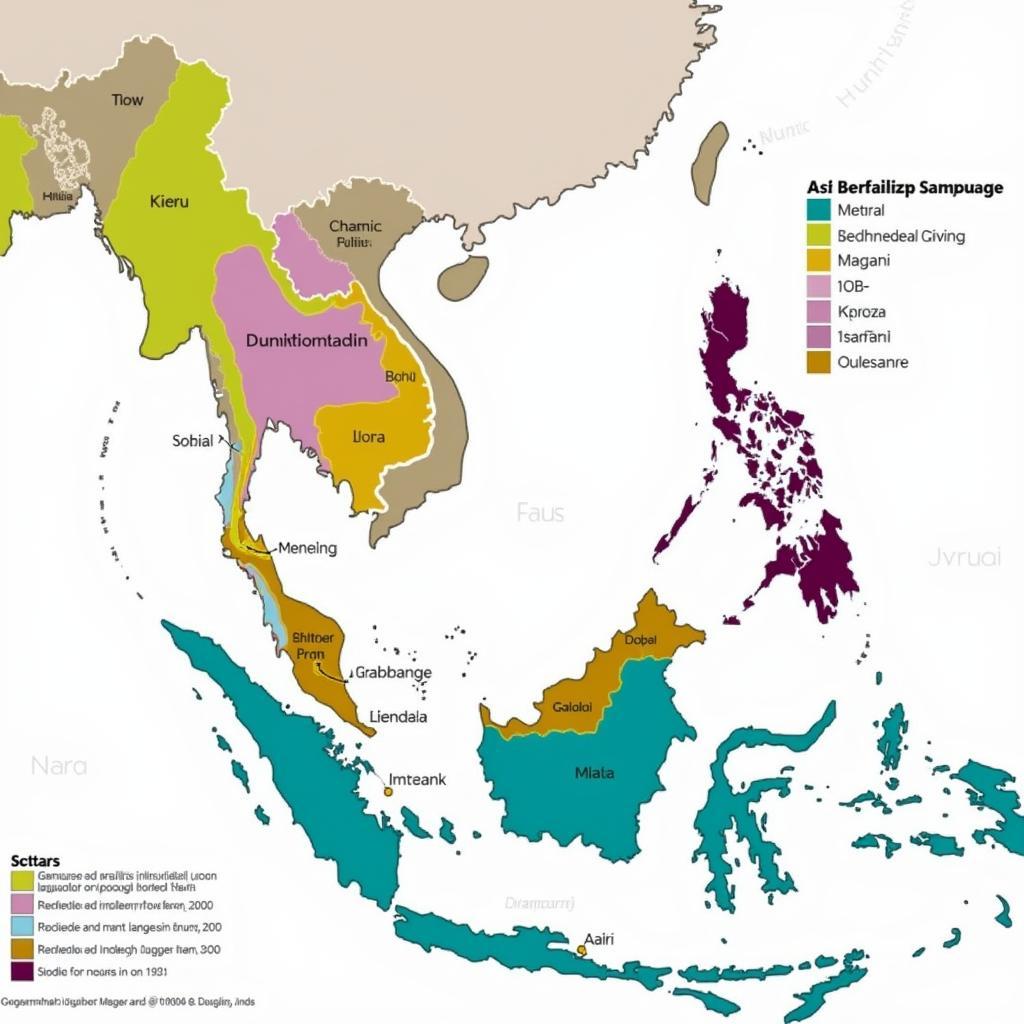The Association of Southeast Asian Nations (ASEAN) has emerged as a prominent force in global affairs, and its acronym “ASEAN” has become synonymous with regional cooperation, economic growth, and cultural exchange. But what does “ASEAN” actually mean? What is the significance of this acronym beyond the mere initials? Delving deeper, we uncover the core values and ambitions that drive the ASEAN project and its impact on the lives of millions across Southeast Asia.
The Core Values of ASEAN
The ASEAN vision is grounded in the pursuit of peace, stability, and prosperity for the region. Its founding principles, reflected in the ASEAN Charter, emphasize the importance of:
- Sovereignty and Territorial Integrity: ASEAN upholds the sovereign rights and territorial integrity of its member states. This principle ensures that each country retains its autonomy and independence within the framework of the regional bloc.
- Peaceful Coexistence: ASEAN promotes peaceful resolution of disputes through dialogue and cooperation, avoiding the use of force or coercion. This principle encourages constructive engagement and fosters a culture of diplomacy within the region.
- Non-interference in Internal Affairs: ASEAN respects the right of each member state to manage its internal affairs without undue influence from others. This principle safeguards the sovereignty and autonomy of individual countries.
- Mutual Assistance: ASEAN recognizes the importance of mutual assistance among member states, especially in times of crisis or disaster. This principle underscores the spirit of solidarity and cooperation within the region.
- Respect for Human Rights and Fundamental Freedoms: ASEAN upholds the principles of human rights and fundamental freedoms, emphasizing the importance of individual dignity and equality. This principle reflects the commitment to creating a just and equitable society across Southeast Asia.
The Pilot of Southeast Asian Integration: ASEAN’s Role and Impact
ASEAN acts as a pilot, steering the integration of Southeast Asia towards shared goals. The organization fosters economic cooperation, cultural exchange, and political stability, driving progress in key areas:
- Economic Growth: ASEAN has facilitated trade liberalization and investment promotion, creating a robust economic bloc. Its free trade agreements and infrastructure development projects have spurred growth and improved living standards for its citizens.
- Cultural Exchange: ASEAN promotes cultural exchange programs, festivals, and artistic collaborations, fostering understanding and appreciation for the region’s diverse heritage. This intercultural dialogue strengthens regional identity and promotes harmony.
- Political Stability: ASEAN promotes political stability through conflict resolution, dialogue, and diplomacy. Its collective efforts have mitigated regional tensions and contributed to peace and security in the region.
The Future of ASEAN: Navigating Challenges and Embracing Opportunities
ASEAN faces challenges, such as disparities in economic development, political tensions, and the impact of globalization. However, the organization is committed to addressing these challenges and embracing opportunities for continued progress.
- Sustainable Development: ASEAN strives for sustainable development, recognizing the importance of environmental protection, social equity, and economic growth. Its efforts to promote sustainable practices and combat climate change are crucial for the region’s long-term well-being.
- Digital Transformation: ASEAN is embracing digital transformation, harnessing technology to enhance connectivity, improve efficiency, and foster innovation. Initiatives in e-commerce, digital infrastructure, and cybersecurity are key to staying ahead in a rapidly evolving world.
- Strengthening Regional Identity: ASEAN continues to promote a shared regional identity, building unity and solidarity among its member states. This involves fostering closer collaboration, strengthening cultural exchanges, and promoting common values.
“ASEAN is not just an acronym; it represents a powerful vision for regional cooperation and shared prosperity,” says Professor Dr. [Name of Expert], a renowned expert in Southeast Asian affairs. “The organization’s dedication to peaceful coexistence, economic integration, and cultural exchange is a testament to the transformative power of regional collaboration.”
FAQ
Q: Why is ASEAN so important?
A: ASEAN plays a vital role in promoting stability, prosperity, and cooperation in Southeast Asia. It fosters economic growth, cultural exchange, and political harmony among its member states.
Q: What are the key goals of ASEAN?
A: ASEAN aims to achieve peace, stability, and prosperity in Southeast Asia through economic integration, cultural exchange, and political cooperation.
Q: What are some of the challenges facing ASEAN?
A: ASEAN faces challenges such as economic disparities, political tensions, and the impact of globalization. However, the organization is committed to addressing these challenges and embracing opportunities for continued progress.
Q: What is the future of ASEAN?
A: ASEAN’s future looks promising as it continues to embrace sustainable development, digital transformation, and strengthen regional identity. The organization’s focus on innovation, collaboration, and inclusiveness will be key to navigating future challenges and achieving its shared goals.
For more information about ASEAN, visit the official website: www.asean.org. You can also contact the ASEAN Secretariat or your local ASEAN embassy for assistance.
